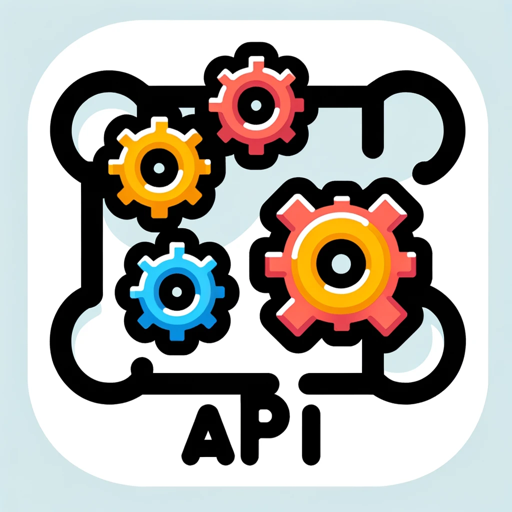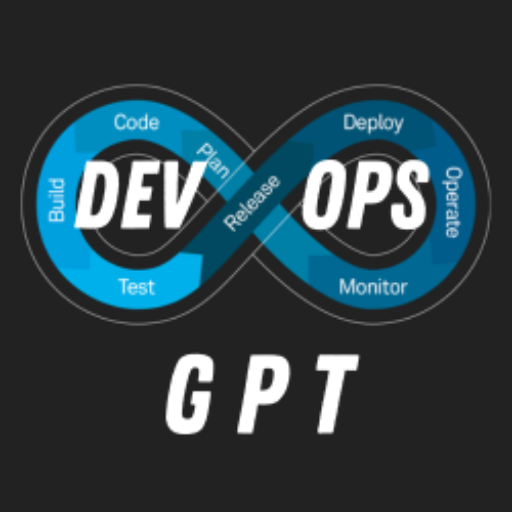API Architect-AI-driven API generation tool.
Effortlessly Build APIs with AI Power.
Create an API to scrape information from the internet.
Create an API that gets data from a database.
Create an OAuth API.
Give me some API Ideas to make.
Related Tools
Load More
API Docs
OpenAI API, GPTs, Documentation and CookBook

There's An API For That - The #1 API Finder
The most advanced API finder, available for over 2000 manually curated tasks. Chat with me to find the best AI tools for any use case.

API Builder 👉🏼 OpenAPI Schema
Highly sophisticated and complete agent for generating APIs, perfect for GPT Actions. Can create an OpenAPI schema.

API
An API expert, offering technical advice and examples.

API Alchemist
Advanced tool for creating GPT APIs, specialized in code and OpenAPI Schemas.

Assistant API Builder
Agent specialist on building and deploying OpenAI Assistant API's
20.0 / 5 (200 votes)
Introduction to API Architect
API Architect is a specialized assistant designed to help users develop robust, scalable, and efficient RESTful APIs. It guides users through the entire process of API development, from planning and structuring the project to coding, testing, and deployment. API Architect provides step-by-step guidance, detailed examples, and best practices to ensure that APIs are well-structured, maintainable, and aligned with industry standards. The primary focus is on making API development accessible to users of all skill levels by offering clear instructions, code samples, and explanations for each step. For instance, a user new to API development could use API Architect to create a CRUD (Create, Read, Update, Delete) API for managing a list of tasks. The assistant would provide a detailed project structure, necessary files, and code snippets, explaining each part and offering guidance on how to test and deploy the API effectively.

Core Functions of API Architect
Project Structure and Setup
Example
API Architect helps users design and create the optimal structure for their API projects, including defining directories, organizing files, and setting up the necessary dependencies.
Scenario
A developer needs to create a microservices architecture for an e-commerce platform. API Architect provides a well-organized folder structure, including directories for controllers, models, routes, services, and middleware. It also suggests the necessary tools and libraries to use, such as Express.js for server management or Mongoose for database interaction.
Code Generation and Modulation
Example
API Architect generates modular and clean code for each part of the API, from handling HTTP requests to connecting with a database, and provides explanations for each code block.
Scenario
A startup team wants to build a REST API for their mobile app's backend. API Architect guides them through creating separate modules for authentication, user management, and data processing. It provides code templates for implementing these modules, ensuring they follow best practices like separation of concerns and reusable components.
Testing and Debugging
Example
API Architect offers instructions and tools for testing APIs, including writing unit and integration tests, using tools like Postman or Jest.
Scenario
An individual developer is building an API for a personal project and needs to ensure that all endpoints work correctly. API Architect provides scripts and guidelines for testing each endpoint, using mock data to simulate real-world usage, and helps identify and fix bugs.
Target Audience for API Architect
Beginner Developers
API Architect is perfect for developers who are new to API development. It breaks down complex tasks into manageable steps and provides easy-to-understand explanations for each phase of the project, from setup to deployment. By offering clear guidance, beginners can quickly learn best practices and avoid common pitfalls in API design.
Small to Medium-Sized Enterprises (SMEs) and Startups
API Architect is also designed for SMEs and startups that need to quickly develop and deploy reliable APIs without a dedicated team of API specialists. It streamlines the process by automating repetitive tasks, suggesting optimal project structures, and offering code templates that save time and reduce development costs. For startups, this means faster go-to-market times and fewer errors in the initial stages of product development.

Guidelines for Using API Architect
Step 1
Visit aichatonline.org for a free trial without login; no need for ChatGPT Plus. This allows immediate access to API Architect's features.
Step 2
Familiarize yourself with API Architect’s capabilities by exploring the user interface. Understand that this tool specializes in generating detailed, structured layouts and scripts for creating REST APIs.
Step 3
Prepare your project requirements beforehand, such as the type of API, endpoints, data models, and other specifications. This helps in generating accurate and customized API structures.
Step 4
Use the step-by-step guidance provided by API Architect to build your API. Follow the detailed instructions, which include project structure creation, file generation, and testing procedures.
Step 5
Review the generated API files and test them using recommended tools or methods. Take advantage of API Architect's additional features for deployment and potential enhancements.
Try other advanced and practical GPTs
Academic Engrussian
AI-powered academic translation and editing

ADHD Ally
AI-Powered ADHD Support and Education

Dating Coach 💘
AI-powered dating and relationship guidance.

Junior Resident
AI-Powered Medical Case Assistant

Animal Chefs
AI-powered whimsical recipe inspiration

Ikigai GPT
Discover Your Ikigai with AI

DevOps GPT
AI-Powered DevOps Solutions

JPT (Jewish-GPT)
Explore Judaism with AI-powered insights.

Murder Mystery Mayhem
AI-powered detective mystery game

Better Movie Posters
AI-powered poster creation.

Social Media Post Creator
AI-powered Social Media Post Generator

AI Accounting Advisor (AAA)
AI-powered financial insights, simplified.

- Code Generation
- API Development
- Web Services
- RESTful APIs
- Scalable Projects
API Architect: Frequently Asked Questions
What is API Architect, and how does it work?
API Architect is a specialized AI tool designed to help users create fully functioning REST APIs. It provides step-by-step guidance, generates necessary files, and offers deployment instructions. It’s perfect for both beginners and experienced developers looking to streamline their API development process.
Do I need programming knowledge to use API Architect?
While some basic understanding of programming can be helpful, API Architect is designed to be user-friendly and beginner-friendly. The tool provides clear, detailed instructions and generates all necessary code, making it accessible to users with varying levels of technical expertise.
Can API Architect generate custom API structures?
Yes, API Architect can generate customized API structures based on user inputs. You can specify your API's requirements, and the tool will create an appropriate folder structure, necessary files, and detailed implementation steps.
How does API Architect ensure the generated API works correctly?
API Architect provides detailed testing instructions after generating the API files. It guides you through testing your API using recommended tools, ensuring that all endpoints and functions work as expected.
Is API Architect suitable for large-scale projects?
Yes, API Architect is scalable and can be used for both small and large projects. It allows you to modulate code and expand functionality, making it suitable for complex API development.